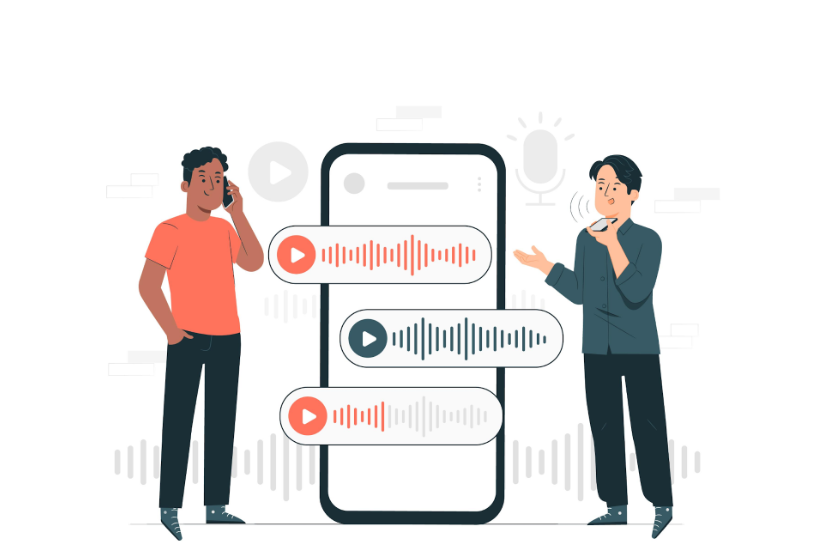In today’s digital world, communication is more than just a conversation—it’s about engagement, personalization, and efficiency. Among the most groundbreaking innovations in communication is voice cloning technology. By mimicking a person’s unique vocal qualities, voice cloning opens up a world of possibilities across multiple industries. This technology, fueled by AI and machine learning, is changing how we interact with machines, consume content, and even engage in business operations.
In this article, we’ll explore the transformative power of voice cloning, its applications, potential benefits, and the ethical concerns surrounding it.
At its core, voice cloning uses AI to replicate human speech. Using machine learning algorithms, the system is trained on hours of voice data from an individual. It then generates synthetic speech that mirrors the original speaker’s tone, pitch, accent, and cadence. Voice cloning technology can now produce remarkably accurate voice replicas, making it almost impossible for a listener to differentiate between a real voice and a cloned one.
This technology is powered by neural networks, a class of machine learning algorithms that analyze patterns in data. The result is a voice that sounds natural, making it ideal for use in a wide range of applications, from entertainment to customer service. invideo ai leverages this cutting-edge neural network technology to generate realistic and human-like voice clones, providing businesses and content creators with a tool that can be seamlessly integrated into various industries.
- Customer Service: Enhancing User Experiences
Voice cloning is revolutionizing customer service. By integrating voice clones into automated phone systems, businesses can provide a more human-like interaction with customers. Personalized interactions using the exact voice of a brand spokesperson or representative improve customer satisfaction and reduce frustration. Whether it’s in an IVR (Interactive Voice Response) system or virtual assistants, this technology allows brands to connect with their customers more effectively and efficiently.
- Content Creation: Voiceovers and Narration
Content creators can now use voice cloning to enhance their work. For example, AI tools powered by voice cloning can generate voiceovers for videos, podcasts, and audiobooks without the need for recording every word. This technology can save time and money while maintaining the same level of quality. Content creators in various sectors, such as marketing, media, and education, can use voice cloning to add a personalized touch to their content and engage their audience with relatable voices.
- Entertainment: The Next Step in Character Creation
The entertainment industry is one of the most exciting areas for voice cloning technology. Movie studios and gaming companies are beginning to use AI to replicate the voices of actors, creating more immersive experiences. By using voice cloning for post-production, creators can keep characters alive for sequels, spin-offs, or other productions without needing the original actor to re-record every line. Additionally, voice cloning is opening doors to new opportunities in creating interactive experiences, such as virtual characters that speak directly to viewers in their own voice.
- Accessibility: Giving a Voice to Those Who’ve Lost It
Perhaps the most heartwarming application of voice cloning technology is its use in helping individuals who have lost their ability to speak. Those suffering from conditions like ALS or paralysis can now use voice cloning technology to regain their voice. By recording their speech before they lose their ability to speak, individuals can have their own voice recreated digitally, allowing them to communicate effectively once again.
Benefits of Voice Cloning
- Personalization at Scale
Voice cloning allows businesses and creators to personalize interactions at scale. Whether it’s creating personalized ads, customer service calls, or educational content, voice cloning helps to establish a deeper connection between brands and consumers. This level of personalization leads to better customer engagement and a stronger brand identity.
- Time and Cost Efficiency
Traditionally, producing voiceovers or custom recordings required time, effort, and significant costs. Voice cloning reduces these expenses by eliminating the need for voice talent and multiple recordings. Content creators, advertisers, and businesses can use a single recording of a voice to generate an endless number of personalized messages at a fraction of the cost.
- Preservation of Voice for Legacy
For those whose careers or lives are deeply tied to their voices—such as public figures, podcasters, or authors—voice cloning offers the opportunity to preserve their voice for future generations. This creates a digital legacy that can continue to be used in new projects, even after the individual can no longer participate.
Ethical Considerations in Voice Cloning
While voice cloning holds immense potential, it also raises ethical concerns. One of the most pressing issues is the possibility of misuse. Deepfakes are a prominent example of how voice cloning can be used for fraudulent activities. Fraudsters could create realistic-sounding messages from cloned voices to deceive individuals or organizations.
Moreover, the issue of consent is significant. For someone’s voice to be cloned, their permission is required. Without proper consent, using someone’s voice for cloning purposes could lead to privacy violations and legal complications.
As the technology progresses, strict regulations will likely be implemented to protect against these abuses. Companies offering voice cloning services will need to ensure that proper safeguards are in place to avoid malicious use.
The Future of Voice Cloning
Voice cloning technology is advancing rapidly, with ongoing improvements in its accuracy, speed, and versatility. In the future, we can expect more personalized and interactive experiences across various platforms. We may see more applications in virtual reality (VR) and augmented reality (AR), where users could interact with AI-generated avatars or characters using their own voice or any other voice they desire.
Additionally, as the technology becomes more accessible, smaller businesses and independent creators will be able to leverage voice cloning for their operations. This could democratize the ability to produce high-quality, personalized voice content without needing a studio or professional equipment.
Conclusion
Voice cloning is a game-changing technology with vast applications across industries. From enhancing customer experiences to preserving legacies, the potential for this technology is limitless. However, as with any powerful tool, it’s essential to proceed with caution, ensuring that its ethical use is prioritized. As AI continues to evolve, voice cloning will no doubt become an integral part of our digital communication landscape.
In the coming years, voice cloning could become as ubiquitous as digital assistants, empowering users to communicate more efficiently and creatively. It’s clear that the future of communication is here, and it’s powered by AI.


